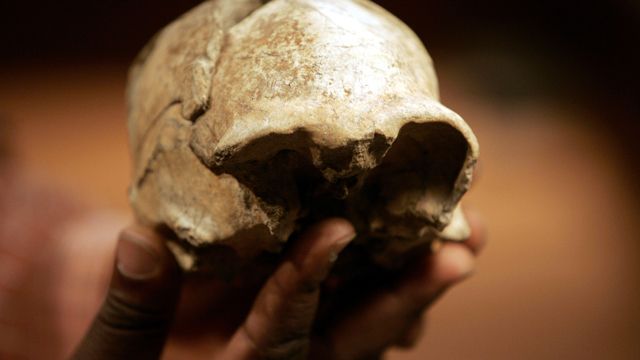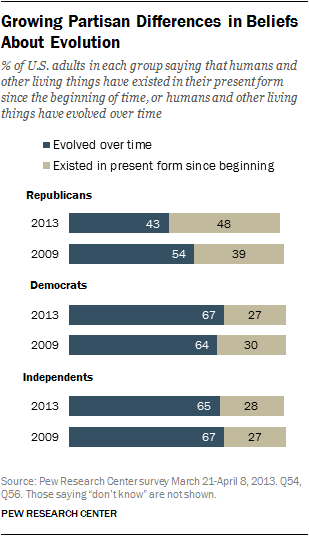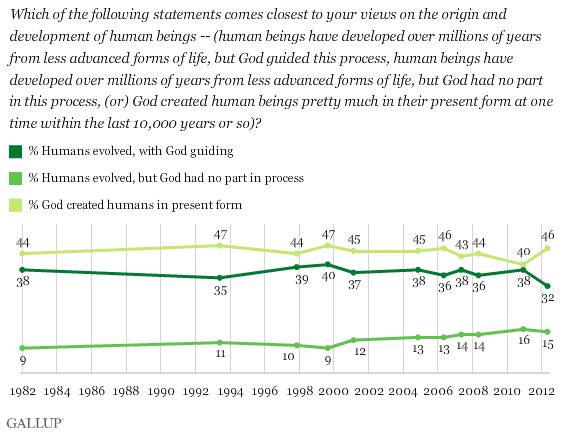
New research has found that about a third of Americans do not believe in evolution, more-or-less unchanged since the last time the Pew Research Center asked the question in 2009. But researchers did notice a note-worthy shift — Republicans are now far less likely to believe in evolution than Democrats. In 2009, 54 percent of Republicans and 64 percent of Democrats endorsed evolution, a ten-point gap. That gap has since increased to 24 points, with 43 percent of Republicans and 67 percent of Democrats believing in evolution in 2013.

Belief in creationism has remained relatively consistent for decades. Gallup has a higher figure than Pew, finding in May 2012 that roughly 46 percent of Americans don’t believe in evolution (to Pew’s 33 percent). When Gallup pollsters asked the same question for the first time in 1982, 44 percent of Americans said they were creationists; researchers got the same figure two decades later, in May 2008.

If both Pew and Gallup found that the percentage of Americans believing in creationism has remained consistent, why the growing partisan split? At ThinkProgress, Zach Beauchamp took a deep dive into the numbers.
There are two keys to understanding what the Pew poll teaches us about Republicans. First, the drop in belief in evolution is among Republicans and, more or less, Republicans only. Acceptance of human evolution was basically the same among Democrats and independents in 2013 as it was in 2009. Second, the share of the total population that believes in evolution hasn’t changed at all. The drop in Republican belief doesn’t appear to be people changing their minds about evolution so much as people who already didn’t believe in evolution becoming Republicans.
Why might that be? The obvious explanation is the changing character of the Republican base. When Republicans win in recent years, those victories are won on the backs of old voters, white voters, and religious voters. While race isn’t super-important in predicting views on evolution, age and religion are. Each generation of Americans, Pew found, is increasingly more likely to accept natural human evolution; Americans 18-29 do so by a 68-27 margin, while the number for seniors (65+) is 49-36. Likewise, white evangelical protestants are the group most likely to reject evolution, while the religiously unaffiliated are by far the most likely to accept it.
In short, Republicans who formerly believed in evolution aren’t being won over by creationists; rather, creationists are becoming more and more likely to identify as Republicans. It’s another aspect of the growing partisan divide in our country, with personal identity and belief-systems becoming increasingly intertwined with voting habits, and with religion becoming an increasingly important part of politics.
Beauchamp’s full post at ThinkProgress is worth a read »


